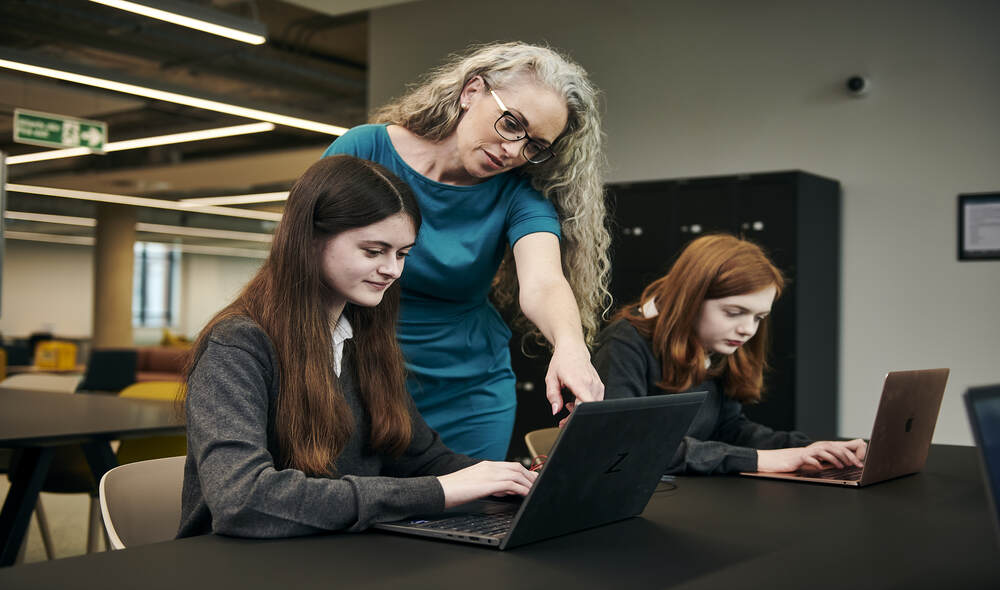Why consistency is key in education, and how to achieve it

The state of education post-covid
While all of us have felt the impact of Covid-19 – from furlough and economic downturns to mental wellbeing and social distancing restrictions – parents and teachers were faced with the unfortunate job of navigating the challenges that school closures presented. For those families with vulnerable children or those with special educational needs and disabilities (SEND) this has also presented several unique challenges.
A recent study on special education during lockdown and the return to school highlighted that many parents of children with SEND said they were concerned about sending their children back to school. Their concerns were due to a range of factors, including safety concerns, medical vulnerability, and specific needs meaning certain students cannot adhere to social distancing. As such, special school and college leaders predicted that around 20,000 pupils nationally would not be returning to the classroom.
With this having a considerable impact on vulnerable children’s academic progress, not to mention their wellbeing and resilience, it’s important to ensure the right support and alternative provision is made available.
Education technology is proving to be invaluable for students, staff and parents throughout lockdown, so we must consider how school leaders – and parents – can ensure effective systems and processes are implemented, not only to support mainstream students, but to facilitate the ongoing learning of vulnerable and SEND learners.
This will help to provide them with a routine for teaching and learning – especially important in those instances where they may not be able to return to a physical classroom.
How to achieve consistency in education via alternative provision
Despite the start of a new academic year, the ride hasn’t been an easy one and schools have already faced several issues, having to regularly alter processes and operations and ensure they are complying with the latest DfE guidance.
For many schools, this has meant reduced and altered contact hours, fewer activities, different routines, and for some students, lower or alternative methods of therapeutic input; all of which impacts staff capacity and 1-1 support.
Combining this with the differing needs and abilities of students and often tracking and monitoring pupil progress remotely presents further difficulties. However, technology and consistency are key to being able to meet a broad range of short to long-term complex needs. Using technology to bridge this gap will help students remain engaged with their learning, without causing disruption to their routine and ensure continuity of education, fairness, and inclusion.
Alternative provision in the form of online schooling, like Academy21, can be implemented relatively quickly, providing additional support for schools that don’t already have a sophisticated online or remote solution – which many don’t. Learners can remain on roll locally with all attendance and progress data integrated and provided to the designated school.
There is also no requirement to make long-term financial commitments; students can be supported for as little as a few weeks, all the way through to a more permanent basis depending on their needs. This consistency in routine – particularly amongst the evolving nature of Covid-19 – is crucial to make sure pupils are able to carry on learning in a way that boosts their confidence, both from an academic and wellbeing perspective.
Whether students are based in the classroom, a pupil referral unit or studying from home, online alternative provision offers students a routine. Lessons can continue being taught at the same time each day, as well as providing a broad curriculum and core subjects. This way of learning not only sustains engagement – through interactive content, gamified learning, and collaborative learning – but also offers development of independent learning, self-belief and collaboration.

The benefits of online learning
Online learning presents a multitude of benefits; if students are absent for a short or long-term period (whether that be for health reasons or not engaging with a traditional environment) they are still able to access lesson content and recordings, even after the lesson has taken place to help them ‘catch up’ or simply reinforce their learning.
This is particularly helpful for vulnerable students to ensure they can learn at their own individual pace, with a personalised timetable and range of tools at their disposal. Not only does this enable them to engage with lessons tailored to their specific needs, but also motivates them to take ownership of their learning.
This type of alternative provision is a highly effective and cost-effective alternative for all students, but particularly those with behavioural difficulties, obsessive compulsive disorder (OCD), emotional disturbance, lack of academic engagement, fears associated with personal or school problems, autism, or children in PRUs.
It provides students with the full teaching and learning experience – as well as a safe and secure environment, pastoral support through mentors, and reporting and feedback functionality – all without needing to be in a physical school.
Providing support for those most vulnerable is more critical than ever before, and as we head towards the Spring term, pupils need to have a clear plan and the right support in place in the lead up to exams, in order to effectively set them up for success and for the next stages of their educational journey.
Therefore, reassurance for parents and support for students is imperative in ensuring that teaching and learning can continue seamlessly – especially given an increasing number of children are being sent home to self-isolate. All children deserve a high-quality education, regardless of their background or situation. The effectiveness of online alternative provision can help bridge this gap and provide a sustainable and meaningful way to support the most vulnerable families and their learners, all while helping improve lifelong prospects.
If you want to learn more about Academy21 and how we can help you ensure consistency in your students’ education, get in touch.
Written by
Academy21
Posted on
06/06/2024
Updated on
26/09/2024
Topic
Student successPost type
Blog

